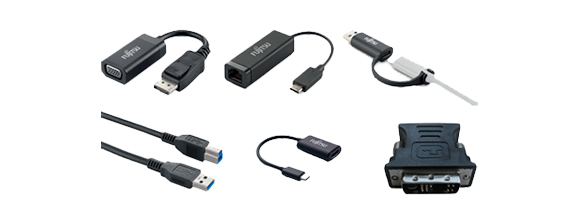Your Essential Neurology Medicine List for Epilepsy, Migraines, and Nerve Pain
Neurological disorders affect millions of people worldwide, impacting their daily lives, work, and relationships. Fortunately, medical science has developed effective treatments to manage these conditions and improve the quality of life for patients. If you or someone you care about is dealing with epilepsy, migraines, or nerve pain, having a clear understanding of the right neurology medicine list is crucial. This blog will guide you through essential medicines that doctors commonly prescribe and why they are important for managing these conditions safely and effectively.
What Is a Neurology Medicine List?
A neurology medicine list refers to a compilation of medications prescribed to treat various neurological conditions that affect the brain, spinal cord, and nerves. From controlling seizures in epilepsy to managing chronic migraines or relieving nerve pain, the right medicines play a key role in treatment. Doctors carefully select a neurology medicine list based on the specific condition, severity, and the individual needs of the patient.
Having a reliable neurology medicine list ensures that patients receive consistent, effective care and minimizes the risk of complications. These medicines not only manage symptoms but can also help prevent the progression of certain neurological disorders when used as directed.
Neurology Medicine List for Epilepsy
Epilepsy is one of the most common neurological disorders, characterized by recurrent seizures. The neurology medicine list for epilepsy includes a variety of anti-epileptic drugs (AEDs) that help control and reduce the frequency of seizures. Common medicines include:
Levetiracetam: Known for its effectiveness in managing partial and generalized seizures, levetiracetam is widely prescribed in the neurology medicine list for epilepsy.
Valproate: This medicine is often recommended for generalized epilepsy and works by stabilizing electrical activity in the brain.
Carbamazepine: Effective for partial seizures, carbamazepine is another staple in the neurology medicine list for epilepsy.
Each of these medications comes with specific dosage requirements and potential side effects, so it’s essential to use them under the guidance of a neurologist. The right neurology medicine list ensures that seizure activity is controlled without unnecessary side effects.
Neurology Medicine List for Migraines
Migraines are more than just headaches—they are complex neurological events that can be disabling. The neurology medicine list for migraines includes both preventive and acute treatment options.
Propranolol: A beta-blocker commonly used in migraine prevention and often included in a standard neurology medicine list.
Topiramate: An anti-epileptic that is effective in preventing chronic migraines.
Triptans (e.g., Sumatriptan): Used for acute migraine attacks, these medicines are critical in any neurology medicine list for migraine sufferers.
Preventive medicines help reduce the frequency of migraine attacks, while acute treatments relieve symptoms during an episode. A personalized neurology medicine list can help patients lead more productive and pain-free lives.
Neurology Medicine List for Nerve Pain
Nerve pain, or neuropathic pain, is often challenging to treat, but several medicines have shown consistent benefits. A well-curated neurology medicine list for nerve pain typically includes:
Gabapentin: This medicine reduces nerve pain by calming overactive nerve signals and is a cornerstone of many neurology medicine lists.
Pregabalin: Similar to gabapentin, it is effective for conditions like diabetic neuropathy and fibromyalgia.
Amitriptyline: Although originally an antidepressant, this medicine is often included in a neurology medicine list for its nerve pain-relieving properties.
Since nerve pain can be chronic, doctors adjust the neurology medicine list to balance pain relief with minimal side effects, ensuring patients can manage daily tasks comfortably.
Importance of Consulting a Doctor for Your Neurology Medicine List
It’s important to remember that no single neurology medicine list suits everyone. Neurological conditions vary greatly in their presentation and severity, and individual responses to medications can differ. A neurologist will tailor your neurology medicine list based on your medical history, other ongoing treatments, and your body’s response to the medicines.
Self-medicating or making changes to your neurology medicine list without medical guidance can lead to adverse effects, poor symptom control, or interactions with other medications. That’s why regular check-ups and open communication with your doctor are key when managing neurological conditions.
Role of Trusted Pharmaceutical Companies
When it comes to obtaining medicines from your neurology medicine list, it’s crucial to choose products from reputable pharmaceutical companies that follow high-quality standards. In India, companies like Biovatic Life Science are known for manufacturing reliable and affordable neurology medicines that meet industry regulations. They help ensure that patients have access to safe treatments that are both effective and reasonably priced.
Final Thoughts
Having the right neurology medicine list is essential for managing epilepsy, migraines, and nerve pain effectively. The list of medicines must be carefully selected by a qualified doctor to suit your individual needs. Whether you are newly diagnosed or have been managing a neurological condition for years, staying informed about your neurology medicine list can help you take an active role in your healthcare journey.
By partnering with trusted doctors and pharmaceutical providers, you can ensure that your neurology medicine list offers the best possible balance between efficacy and safety. Always follow medical advice and avoid altering your prescribed neurology medicine list without consultation to achieve the best outcomes in your treatment plan.
FAQs
Q1: Can I change my neurology medicine list on my own?
No, altering your neurology medicine list without a doctor’s guidance can be dangerous and may worsen your condition.
Q2: Are there side effects in the neurology medicine list for epilepsy?
Yes, some anti-epileptic drugs may cause drowsiness, dizziness, or mood changes. Your doctor will choose medicines in your neurology medicine list to minimize side effects.
Q3: Is it safe to take migraine medicines daily from my neurology medicine list?
Preventive medicines in your neurology medicine list are meant for regular use, but this should be done strictly under medical supervision.
Q4: Can natural remedies replace my neurology medicine list?
While lifestyle changes can help, they should not replace your prescribed neurology medicine list. Always consult your neurologist before making any changes.
Q5: Where can I get reliable medicines from my neurology medicine list?
It’s best to purchase medicines from licensed pharmacies that source from reputable companies like Biovatic Life Science.








This comprehensive guide offers an invaluable resource for understanding the essential neurology medicines needed to manage epilepsy, migraines and nerve pain. It's a must-read for patients seeking clarity on their treatment options.
This comprehensive guide provides a priceless resource for anyone seeking effective treatment options and managing conditions like epilepsy, migraines without auras or with aura数十秒的前驱症状), as well in addressing nerve pain. An indispensable pocket reference.
This concise yet comprehensive guide offers a nest of crucial neurological remedies, delineating effective药物治疗for epilepsy patients along with offering holistic solutions to mitigate migraines and nerve pain. A must-have reference for both medical professionals seeking advanced treatments as well.














